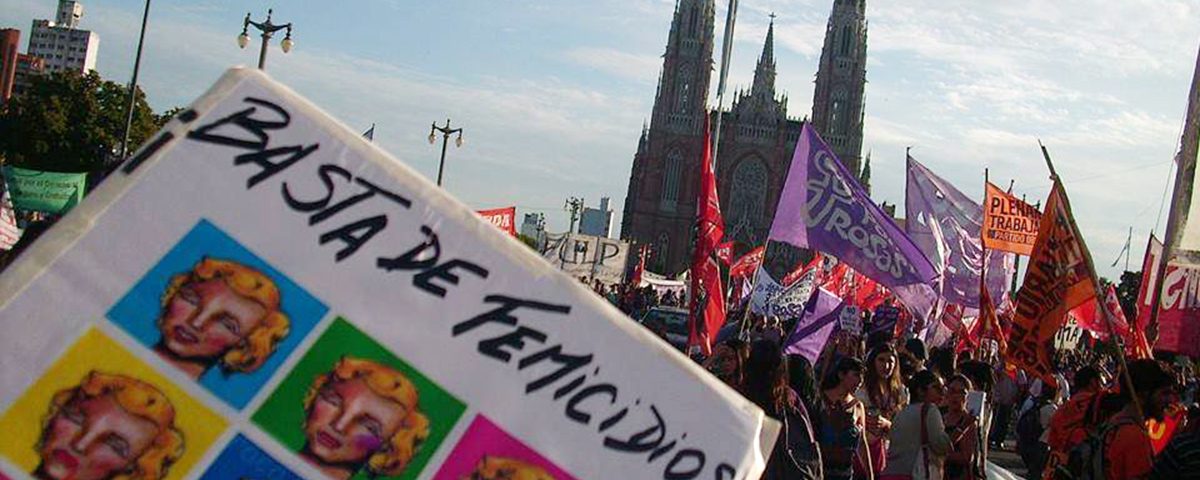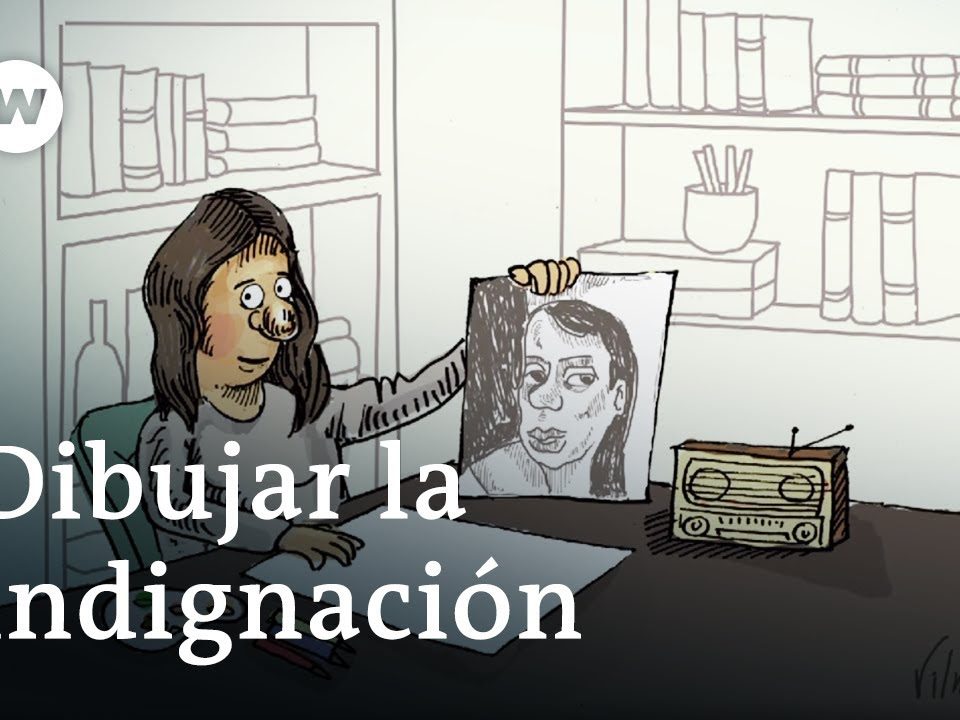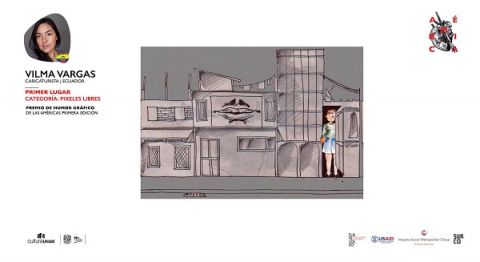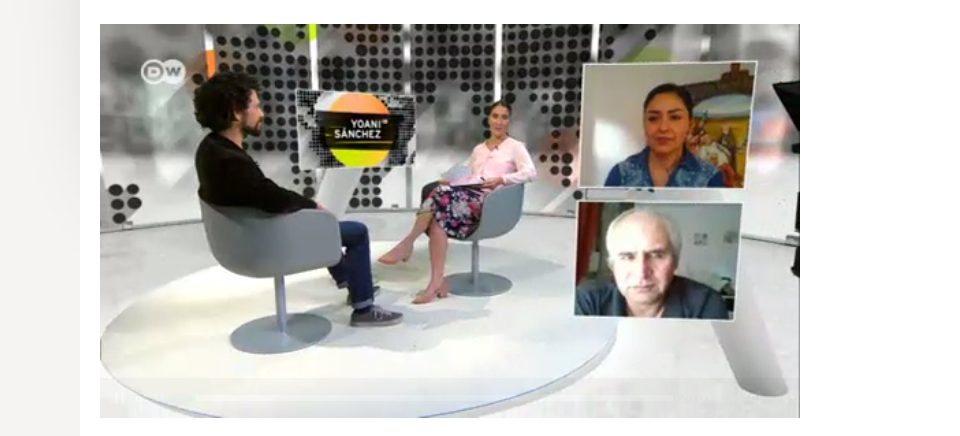Making the Powerful Feel Naked: An Interview with Vilma Vargas

Q&A with Ecuadorian cartoonist, activist Vilma Vargas
6 febrero, 2017
First 2016/2017 report on the situation of cartoonists around the world.
10 mayo, 2017
Artist Vilma Vargas
by Emma Creighton / February 20, 2017
Ecuadorian president Rafael Correa is not a fan of cartoonist Vilma Vargas. Her work primarily confronts human rights issues, the environment, and corruption in her country. Her politically charged work has drawn criticism from his regime, and last May an exhibition of her work was censored by Ecuador’s cultural organization. Nevertheless, she continues to work as a political and social advocate, fighting for freedom of speech and the opening of civic discourse in her work.
Vilma Vargas was an Artist Protection Fund fellow in residence at City of Asylum in 2016. She sat down with Sampsonia Way Magazine to discuss the artist’s craft, an unnerving break-in at her home in Ecuador, President Correa’s crackdown on journalists, and the power of the image.
When did you know that you were an artist? Why did you become a political cartoonist?
I think that the cartoonist’s profession starts basically when you realize that you are pretty useless for just about everything except for drawing and painting. I don’t know if there is ever a specific moment when you say, “Oh I’m an artist!” I just know that I am an artist. I think the artist profession is something you can’t learn in college. To be an artist is to think, to learn, to read, to travel. It’s everything. It’s a lifestyle. Everyday I’m learning through reading and drawing.
As for the reason why I draw political cartoons: I think that the most important influencers in Ecuador are the politicians. Both the politicians themselves and politics influence all lives. It is the job of cartoonist to copy reality, and drawing is the language of cartoonist with which the cartoonist captures reality. I also prefer drawing about human rights, women’s rights, and the justice system in my country because these are the issues that we struggle with every day.
Humor never lies to power.
Here in the United States there are many female cartoonists, but in South America there are really only two. I think it’s because in Latin America, a woman’s education is very limited. People think that women will only become mothers, and I think that is problematic. And maybe some women just don’t think about politics or about their human or women’s rights.
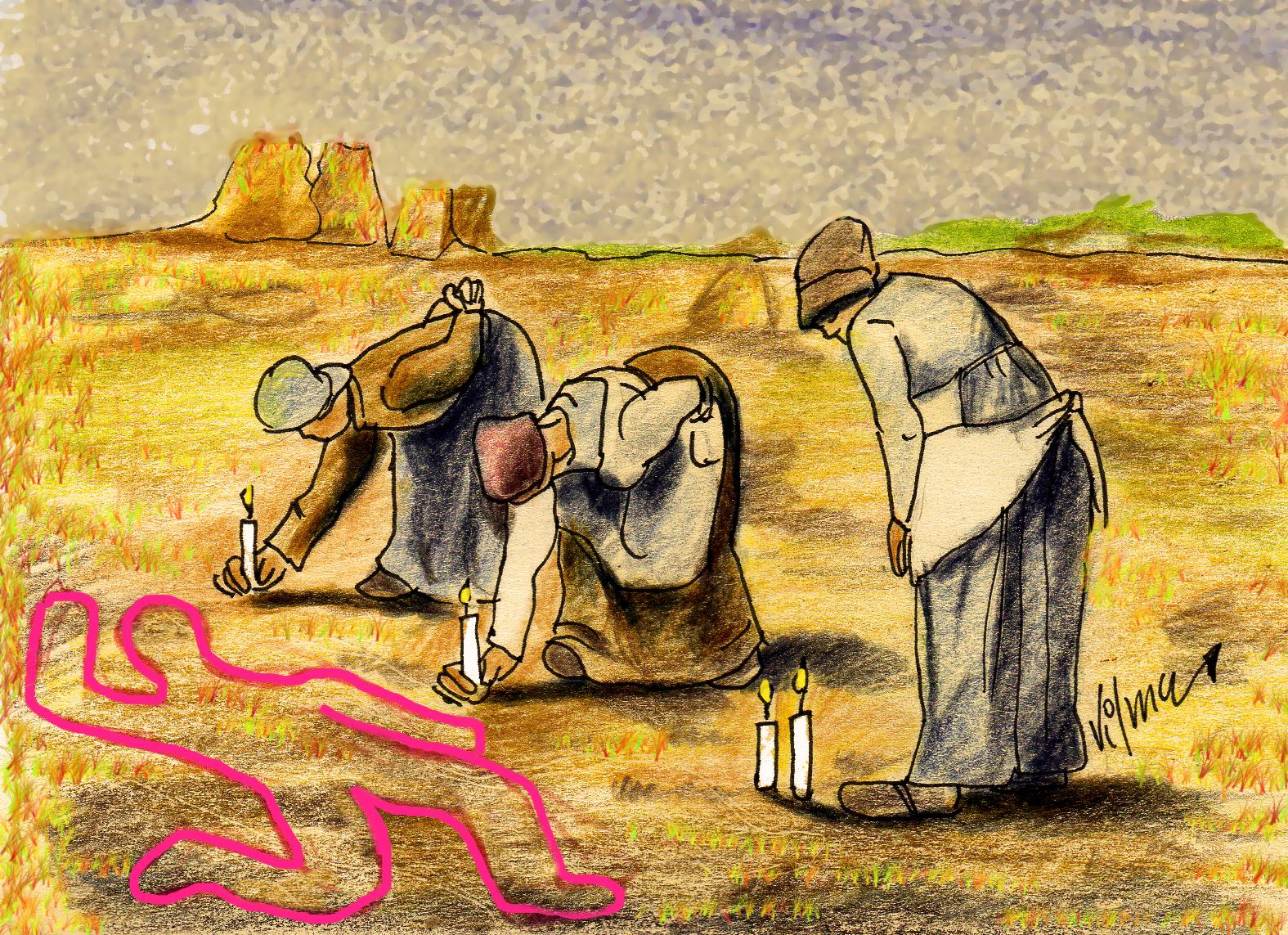
“Las espigadoras de Millet. Cartoon by Vilma Vargas”

